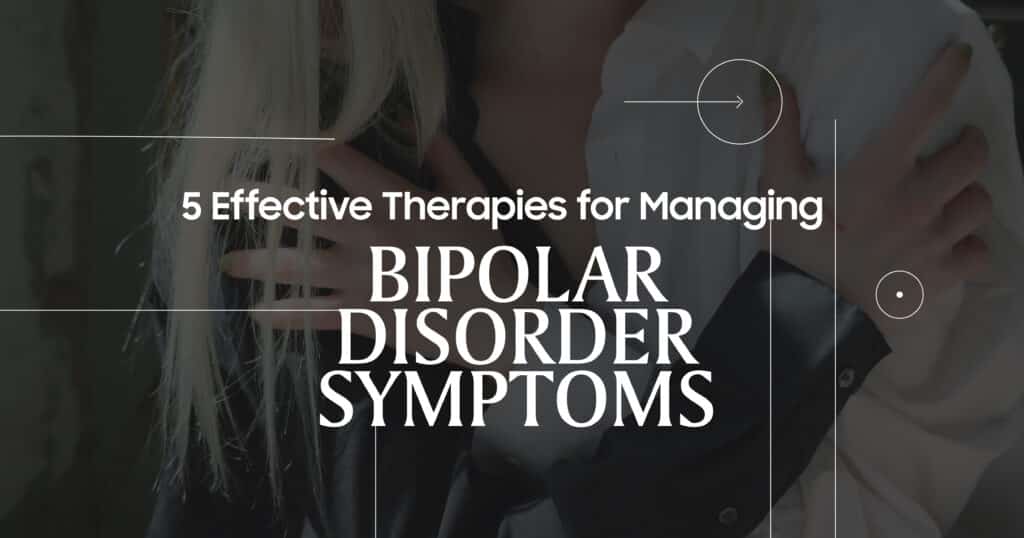Introduction
Battling bipolar disorder can often feel like you’re on an emotional rollercoaster, where the highs are sky-high and the lows, well, they can drag you down. Managing this condition requires no walking in the park, but with the right strategies, it’s definitely within the realm of possibility. This guide dives deep into five effective therapies that have been making waves in the mental health community for their ability to help folks with bipolar disorder lead more stable and fulfilling lives. Let’s explore these therapies and see how they might help you or someone you love find firmer footing.
Understanding Bipolar Disorder and Its Challenges
First off, it’s key to grasp what we’re up against. Bipolar disorder is a mental health condition characterized by extreme mood swings, including emotional highs (mania or hypomania) and lows (depression). These aren’t just any mood swings; they’re the kind that can throw life completely off track.
The Impact on Daily Life
Living with bipolar disorder can affect everything from your relationships to your job to your overall life satisfaction. Here’s a snapshot of its impact:
- Relationship Strain: Navigating personal relationships can be like walking on eggshells.
- Workplace Challenges: Maintaining productivity and managing professional relationships can be tough when your mood swings.
- Emotional Turbulence: The intense emotions can feel overwhelming and exhausting.
5 Effective Therapies for Managing Bipolar Disorder Symptoms
Now, let’s get down to brass tacks and discuss the therapies that can make a difference.
1. Cognitive Behavioral Therapy (CBT)
CBT is a powerhouse when it comes to mental health therapy. It helps by:
- Changing Thought Patterns: Transforming negative thought loops that can lead to emotional spirals.
- Developing Coping Strategies: Equipping you with practical tools to manage stress and reduce mood swings.
2. Psychoeducation
Knowledge is power, right? Psychoeducation involves learning about bipolar disorder to understand better and manage it. This includes:
- Understanding the Disorder: Recognizing symptoms and triggers.
- Learning Management Skills: Developing strategies to cope with symptoms effectively.
3. Family-Focused Therapy
You don’t have to go it alone—family can play an important role in managing bipolar disorder. This therapy:
- Enhances Family Communication: Helps family members understand what you’re going through.
- Builds Support Systems: Strengthens family support, crucial for long-term management.
4. Interpersonal and Social Rhythm Therapy (IPSRT)
This therapy emphasizes maintaining a regular routine to stabilize mood swings. It focuses on:
- Routine Building: Establishing consistent sleep patterns and daily routines.
- Managing Relationships: Improving interpersonal skills to reduce stress caused by social interactions.
5. Medication Management
While not a therapy in the traditional sense, managing medication is vital. It often works best alongside other therapies. This approach involves:
- Regular Consultations: Working with a psychiatrist to find the right balance of medication.
- Medication Adherence: Sticking to prescribed medication regimens to stabilize mood over the long term.
Real-Life Benefits of These Therapies
Many have found these therapies to be game-changers. Here’s how they can help:
- Greater Emotional Stability: Fewer and less severe mood swings.
- Improved Relationships: Healthier and more stable, personally and professionally.
- Enhanced Quality of Life: Overall improvement in daily functioning and satisfaction.
FAQs: Your Questions Answered
How long do these therapies take to show results?
Results can vary, but people can start seeing improvements within a few months of consistent therapy.
Are these therapies suitable for all stages of bipolar disorder?
Yes, these therapies can be tailored to different stages and symptoms of bipolar disorder, making them widely applicable.
Can these therapies be combined?
Absolutely! Combining these therapies often leads to better outcomes.
Wrapping Up: Your Pathway to Stability
Embarking on any of these therapies could be your first step towards a more stable and fulfilling life. With the right approach and support, managing bipolar disorder becomes a more navigable journey.





